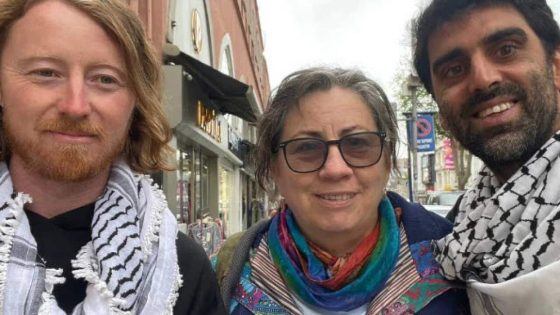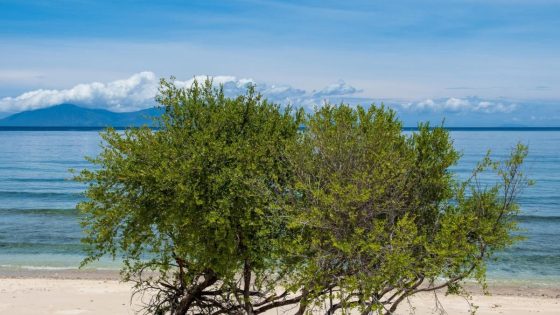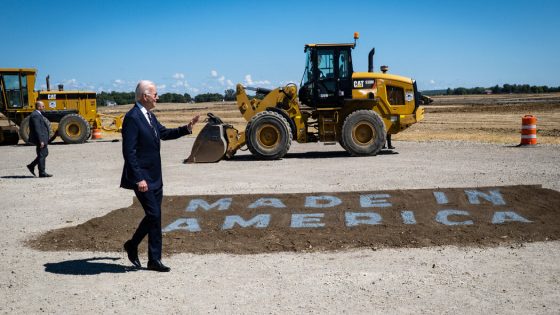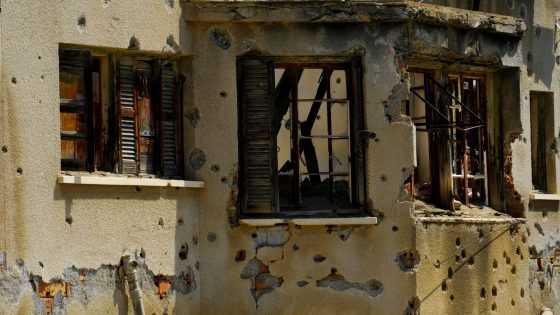Key Points
- The Freedom Flotilla, comprised of hundreds of civilians from more than 30 countries, will soon depart from Turkey.
- The flotilla of vessels will carry “food, medical supplies and other goods urgently needed for survival” to Gaza.
- DFAT says it has tried to make contact with the Australians involved with the Freedom Flotilla Coalition.
Three Australians have joined a flotilla of peace activists that aims to sail through the Israeli Navy’s blockade of Gaza, in a bid to deliver 5,500 tonnes of aid.
Dubbed the Freedom Flotilla and comprised of hundreds of civilians from more than 30 countries, the coalition will set sail across the Mediterranean Sea in several vessels carrying “food, medical supplies, and other goods urgently needed for survival,” according to its website.
The vessels are expected to depart from Turkey this weekend.
Among those taking part in the peace mission are at least three Australians: Daniel Coward, Surya McEwen and Helen O’Sullivan.
O’Sullivan, a social work field educator with the University of Queensland, said she decided to join the flotilla after months of watching the news “with sadness”.
“No one seems to be speaking up loud enough,” she told SBS News.
“I have grandchildren that are the age of those 12,000-plus children that have been killed already.”
Australian grandmother Helen O’Sullivan is one of at least three Australians onboard the Freedom Flotilla. Source: Supplied / LinkedIn/Helen O’Sullivan
“I know Australians don’t believe what’s going on [in Gaza] is okay,” she added. “This is not about religion, this is not about race, this is about humanity.”
The Freedom Flotilla Coalition (FFC) has been expressing solidarity with the people of Gaza for more than 15 years, sailing more than 35 boats to challenge Israel’s naval blockade of the enclave. Its first flotilla set sail on 23 August 2008, when 44 people from 17 countries travelled from Cyprus to Gaza on two small wooden boats.
This year, FFC will conduct two separate missions – the “Emergency Humanitarian Aid” mission and the “For the Children of Gaza” mission – sailing from Istanbul to Gaza with 5,500 tons of humanitarian aid and hundreds of peace activists.
‘When our governments fail, we sail’
FFC has said it will not cooperate with Israel in allowing checks of its vessels.
The coalition states that it rejects Israel’s control over humanitarian aid entering Gaza, as well as any Israeli inspection of its cargo, which it says will be inspected by third parties to ensure no weapons are brought on board.
“We will be travelling from international waters directly into Palestinian waters,” McEwen told SBS News. “We have a philosophy that when you’re bringing support and solidarity to the oppressed you can’t ask permission of the oppressor.”
At least 33,175 people have been killed Gaza since 7 October, according to the territory’s health ministry. The deficit of aid is making matters worse. Source: AAP / MOHAMMED SABER
On its website, FFC points out that “The reason for the current starvation and lack of medical supplies in Gaza is because the international community allows Israel to impede and limit humanitarian aid from entering Gaza under the excuse of inspection.”
“Israel continues to impede thousands of aid trucks from entering Gaza,” it adds. “We therefore refuse to allow the party that has caused the devastating famine and continues its genocidal actions to be the one to impose a similar restriction on this aid.”
While those taking part in the flotilla have received training in peaceful demonstration, missions like this have been met with violence in the past.
In 2010, the Mavi Marama Flotilla was attacked while carrying 600 humanitarian activists, politicians, and doctors from 40 different nations on the way to Gaza. Eight Turkish nationals and an American Turkish national were shot and killed during a raid on the boat, while another Turkish national died later from his injuries. Dozens more were wounded.
“Ten peaceful, unarmed civilians taking aid were murdered in international waters on that ship,” McEwen said.
“Of course I’m afraid; we all are. We understand the dangers, but the situation is so horrific and a lack of solidarity stains the entirety of humanity. It feels like it’s important that we do this anyway.”
“We have a philosophy with the flotilla that when our governments fail, we sail. So we’re sailing.”
Breaking the blockade
While Australia’s Department of Foreign Affairs and Trade (DFAT) says it has tried to make contact with the Australians involved with the FCC, all three of them told SBS News at the time of the interview that they had not heard from the department.
In a statement to SBS News, DFAT declared that “Those wishing to deliver humanitarian aid should do so through established channels.”
“Previous attempts to break the naval blockade along the coast of Gaza have resulted in injury, death, arrest and the deportation of foreigners,” the statement said.
“We urge Australians not to try to break the naval blockade.”
The three Australians involved in the flotilla expressed disagreement with DFAT’s instruction.
“I think that goes against all duty that we have as citizens,” Coward told SBS News. He further noted that, regardless of how the mission develops, it is the Australian government’s obligation to assist in whatever way possible.
The people of Gaza are in the midst of a humanitarian crisis. Source: Getty / AFP
“I think they [the Australian government] have a duty to help us in any way that they can – prior to, during and after this mission,” he said. “No matter how it goes.”
Israel has bombarded Gaza since Hamas’ 7 October attack in which more than 1,200 people, including an estimated 30 children, were killed and over 200 hostages taken, according to the Israeli government. That incident was a significant escalation in the long-standing conflict between Israel and Hamas.
More than 33,175 people have been killed in Gaza since, mostly women and children, according to the local health ministry. And the deficit of aid is making matters worse.
The people of Gaza are in the midst of a humanitarian crisis, with the UN repeatedly warning of a looming famine and being vocal about the difficulties it’s faced getting aid into Gaza and distributing it.
With its voyage set to deliver 5,500 tonnes of aid to the devastated enclave, FFC is trying to address that problem.
“We have a responsibility to other people in the world. There’s a genocide happening, people are being denied food and basic needs, and it’s our responsibility to take it to them,” McEwen said.
“Australia’s a party to the genocide convention; the ICJ has demanded that people who are party to the genocide convention provide aid and don’t hinder it. So I would demand the [Australian] government to make sure that we have safe passage because we’re doing their work for them.”
The ICJ in January issued a provisional order stating that the Genocide Convention – that is, an international treaty that criminalises genocide and obligates parties to enforce its prohibition – applies to Gaza.
More specifically, it stated that Israel was obliged to take all possible measures to prevent and punish “the direct and public incitement to genocide” against the Palestinian populace in Gaza.
— that process could take years.
Controversially, the ICJ stopped short of calling for a ceasefire.
With additional reporting by Agence France-Presse.






